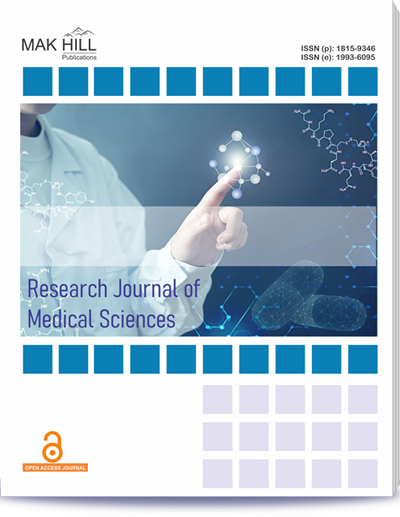
Research Journal of Medical Sciences
ISSN: Online 1993-6095ISSN: Print 1815-9346
247
Views
34
Downloads
Abstract
Pneumonia is the leading infectious cause of under 5 mortality. This study was done to describe the clinical outcome of children hospitalized with Community‐Acquired Pneumonia receiving Ampicillin and to assess factors influencing Treatment Failure in Community Acquired Pneumonia treated with Ampicillin. Prospective observational study, in which 235 children with Severe Pneumonia between 2 months to 60 months were enrolled and started with intravenous Ampicillin according to WHO guidelines and were monitored for response to therapy. Outcomes were assessed after 48 hours of starting Ampicillin. Among 235 cases, children who responded to Ampicillin were 192 (81.7%), Forty three (18.3%) children did not respond to Ampicillin. Among 235, males were 60.85% and females were 39.15% and 51.9% of children were infants and 48.1% were above 1 year. All children (100%) had history of fever and cough. Majority were (85.1%) from low socioeconomic group and 80.85% were completely Immunized. MAM was present in 30.2% of children, 30.21% had signs of Rickets and 70.21% children had anemia There was significant improvement in general condition of the children, tachypnea, fever, chest retractions and requirement of oxygen from the time of admission to 48 hours To conclude intravenous Ampicillin is effective as the first line antibiotic for children hospitalized with severe Pneumonia.
How to cite this article:
M.A. Manu, Lokeswara Reddy Avula and P. Divyashree. Clinical Outcome of Children Hospitalized with Community Acquired Pneumonia Treated with Ampicillin in Tertiary Care Center.
DOI: https://doi.org/10.36478/10.36478/makrjms.2024.8.226.231
URL: https://www.makhillpublications.co/view-article/1815-9346/10.36478/makrjms.2024.8.226.231